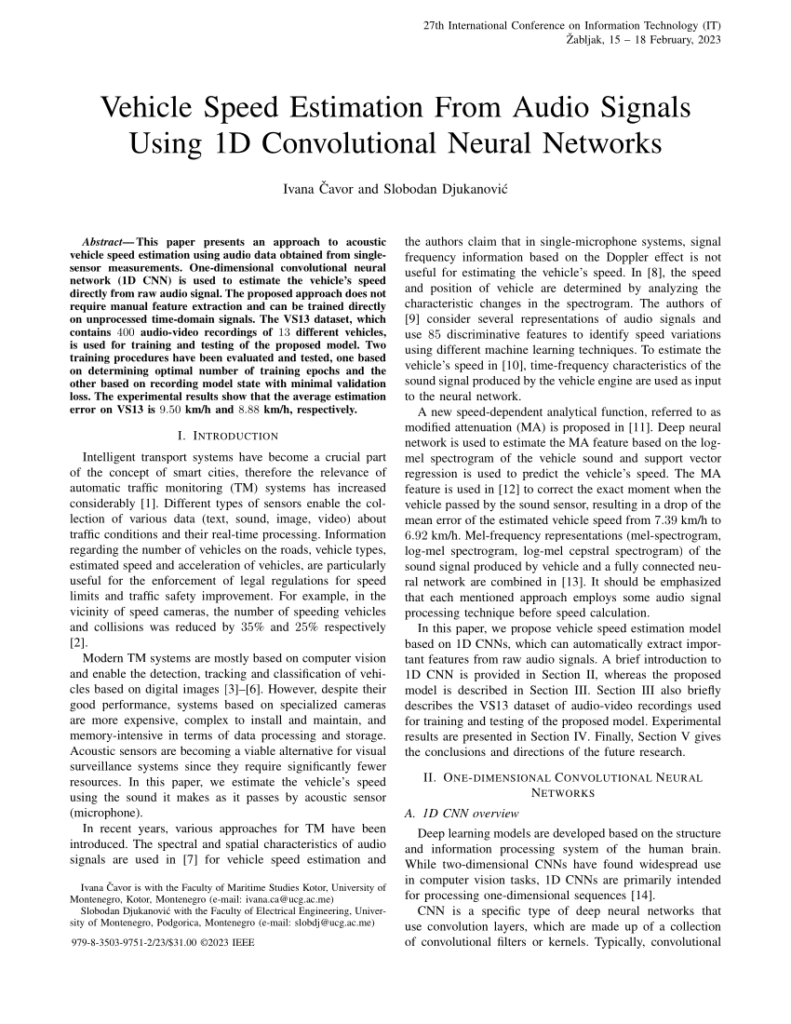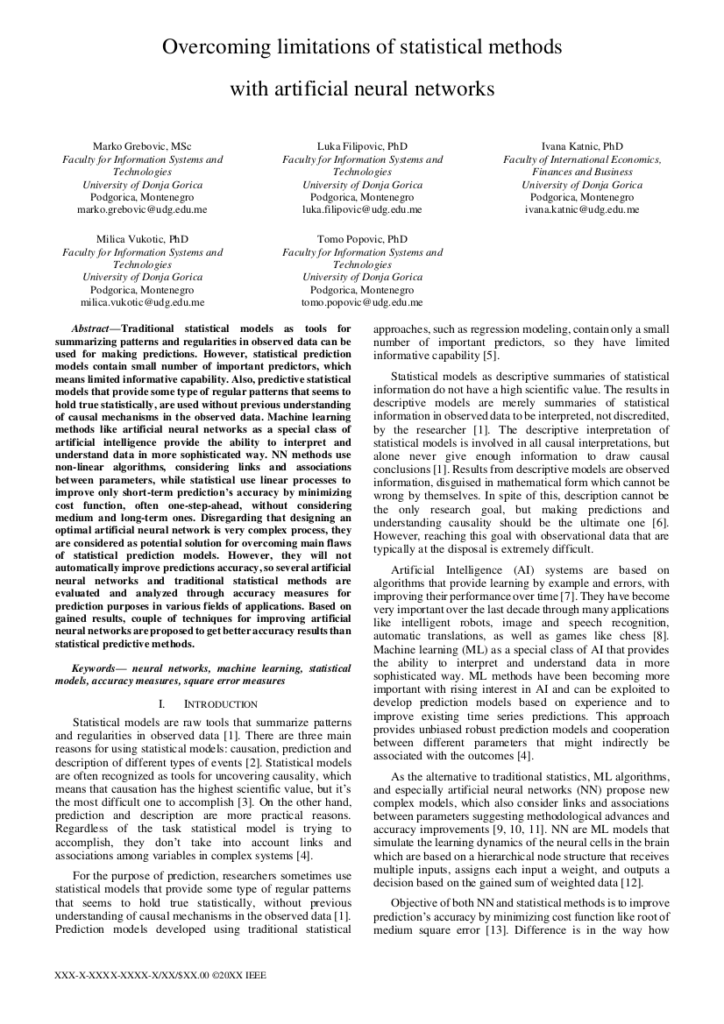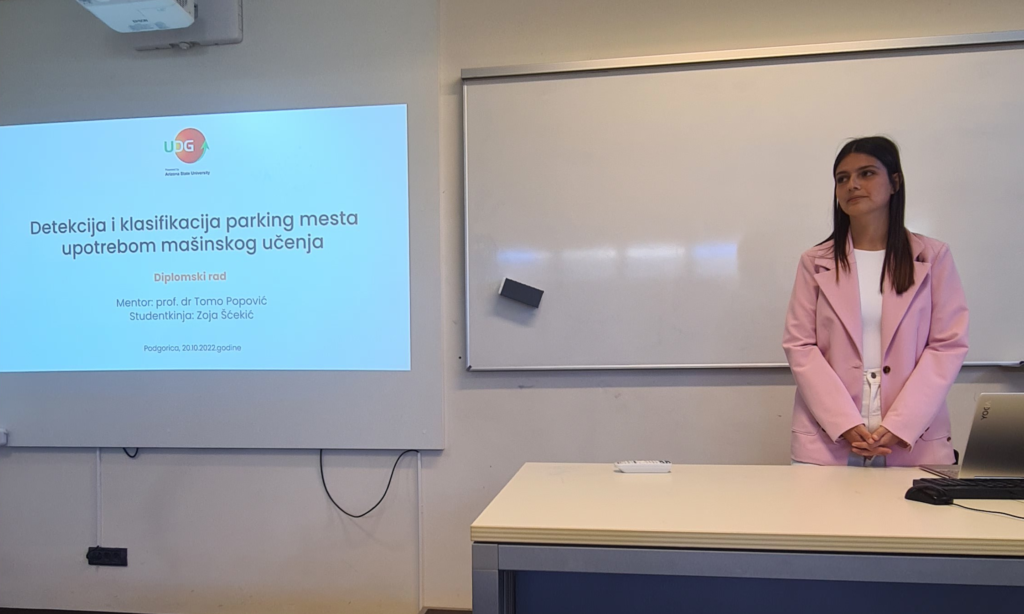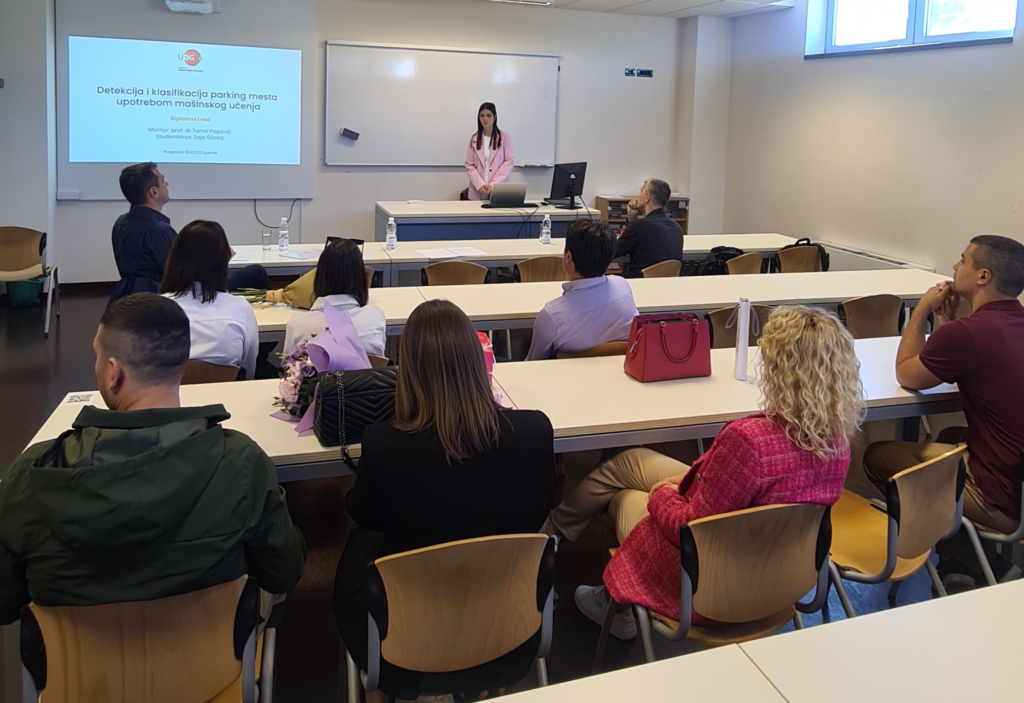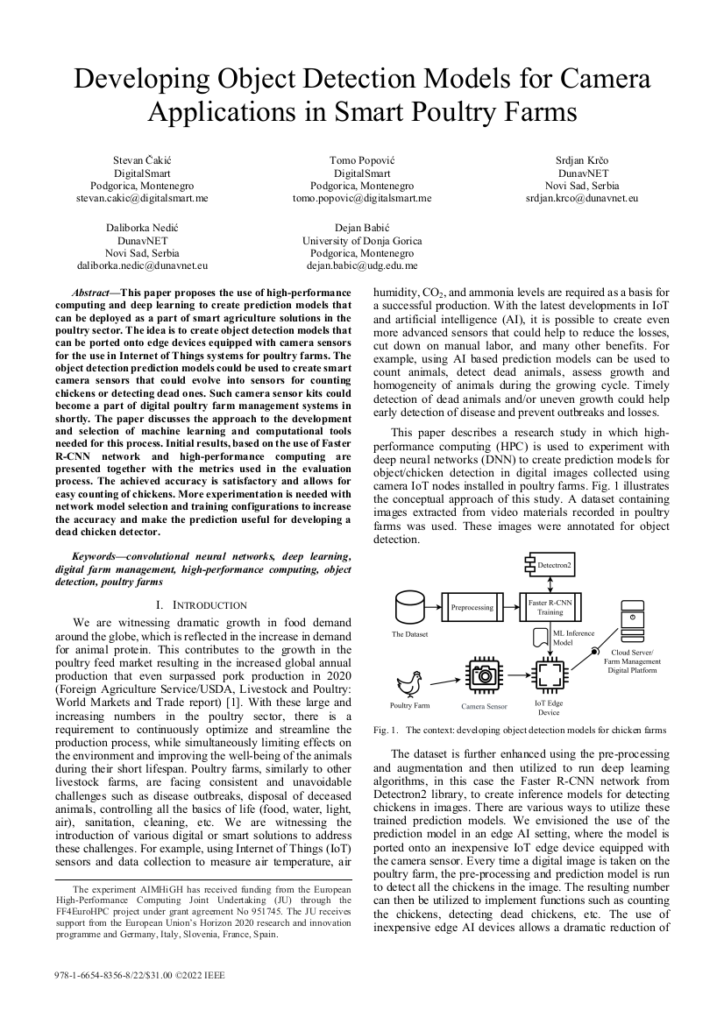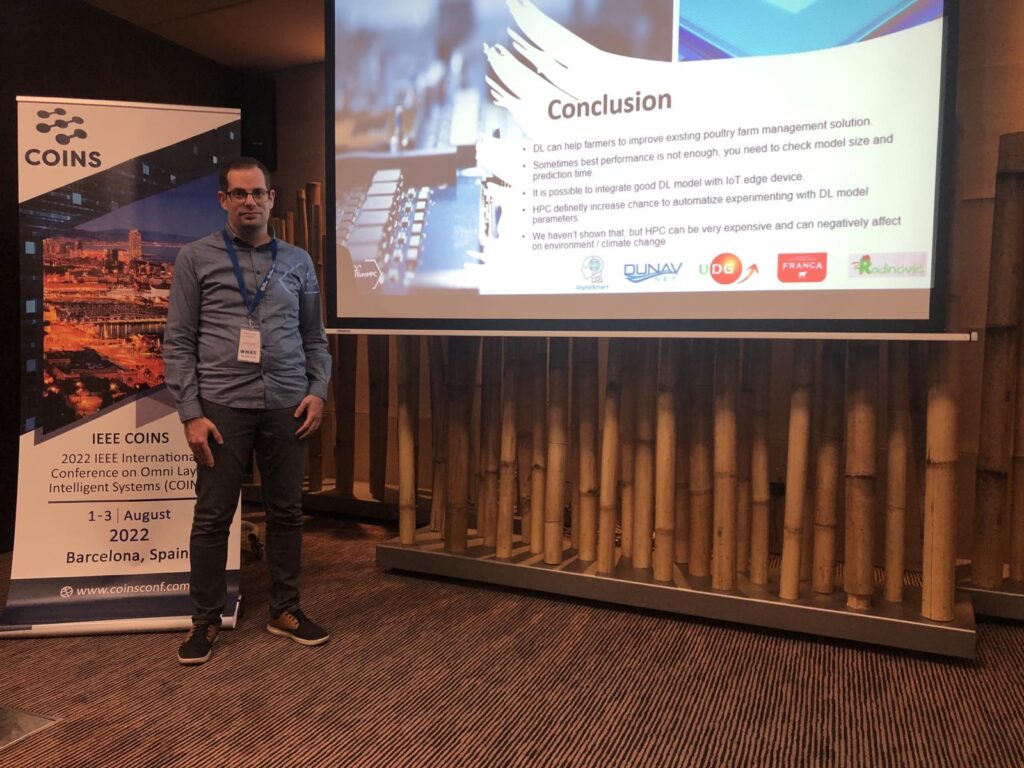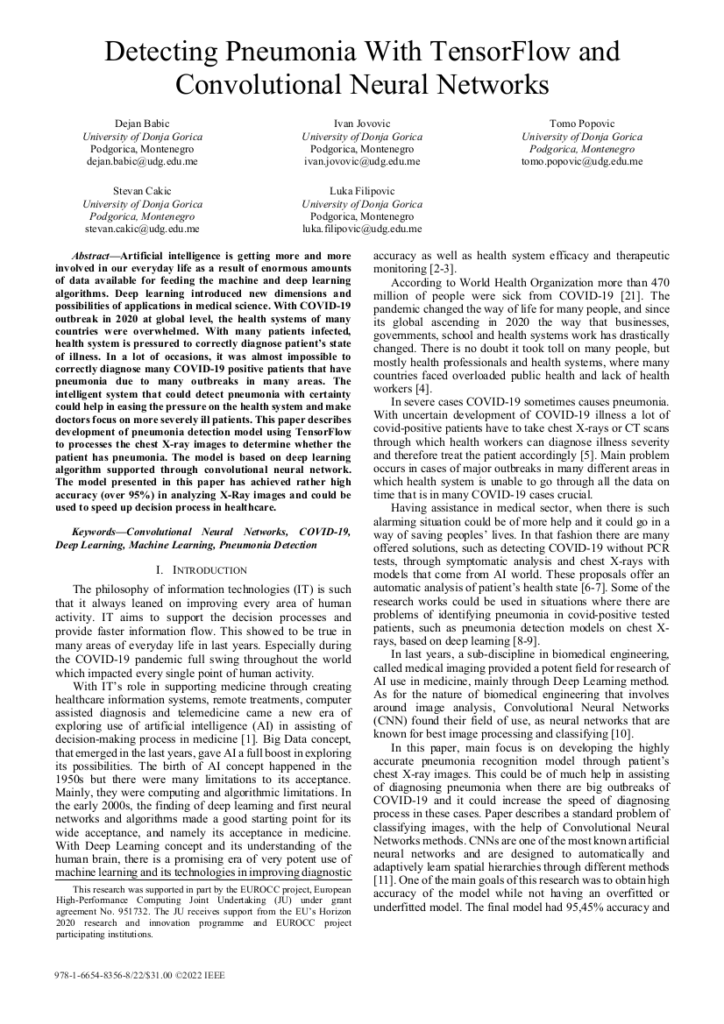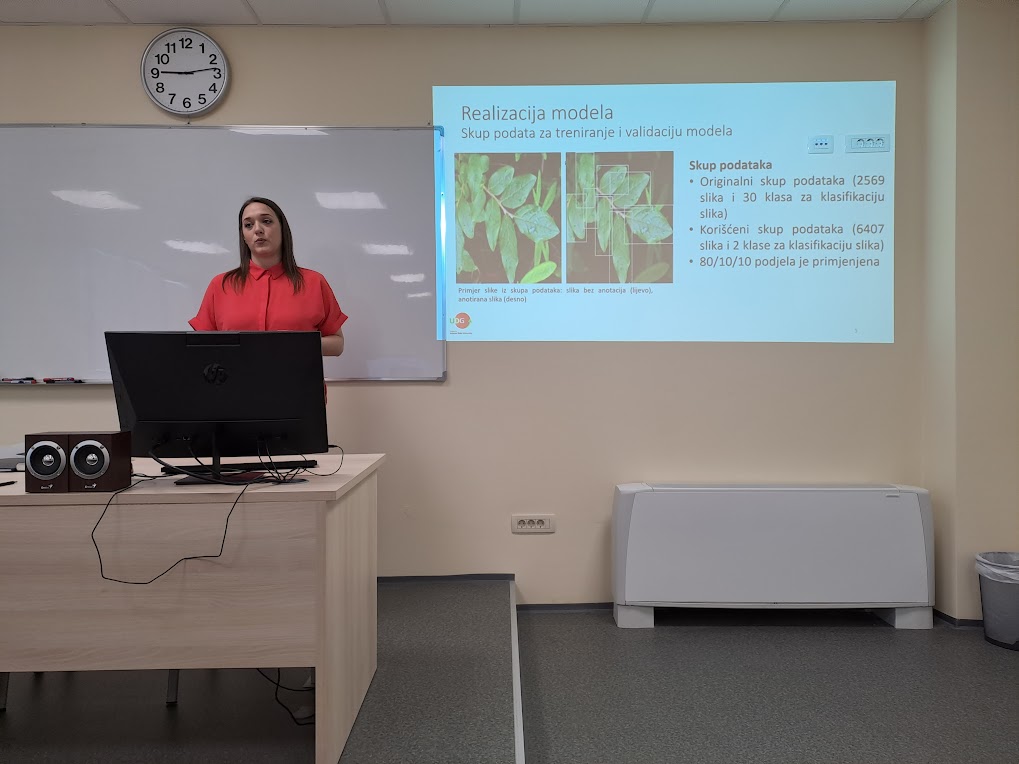Researchers from NCC Montenegro presented a paper at the 27th IEEE Conference on Information Technology IT2023.
The paper is titled “Vehicle Speed Estimation From Audio Signals Using 1D Convolutional Neural Networks” and authored by Ivana Čavor and Slobodan Djukanović.
ABSTRACT : This paper presents an approach to acoustic vehicle speed estimation using audio data obtained from single-sensor measurements. One-dimensional convolutional neural network (1D CNN) is used to estimate the vehicle’s speed directly from raw audio signal. The proposed approach does not require manual feature extraction and can be trained directly on unprocessed time-domain signals. The VS13 dataset, which contains 400 audio-video recordings of 13 different vehicles, is used for training and testing of the proposed model. Two training procedures have been evaluated and tested, one based on determining optimal number of training epochs and the other based on recording model state with minimal validation loss. The experimental results show that the average estimation error on VS13 is 9.50 km/h and 8.88 km/h, respectively.
